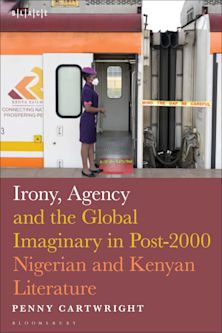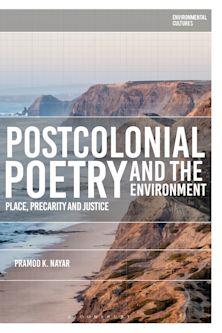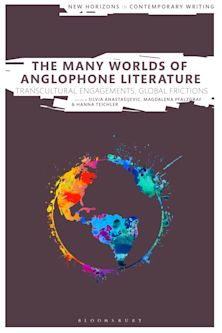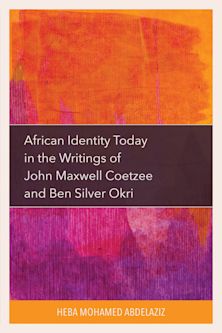- Home
- ACADEMIC
- Literary Studies
- African Literature
- Receptions of the Classics in the African Diaspora of the Hispanophone and Lusophone Worlds
Receptions of the Classics in the African Diaspora of the Hispanophone and Lusophone Worlds
Atlantis Otherwise
Elisa Rizo (Anthology Editor) , Madeleine M. Henry (Anthology Editor) , Cesar Augusto Baldi (Contributor) , Rodrigo Tadeu Gonçalves (Contributor) , Guilherme Gontijo Flores (Contributor) , Madeleine M. Henry (Contributor) , Andrea Kouklanakis (Contributor) , John T. Maddox IV (Contributor) , Elisa Rizo (Contributor)
Receptions of the Classics in the African Diaspora of the Hispanophone and Lusophone Worlds
Atlantis Otherwise
Elisa Rizo (Anthology Editor) , Madeleine M. Henry (Anthology Editor) , Cesar Augusto Baldi (Contributor) , Rodrigo Tadeu Gonçalves (Contributor) , Guilherme Gontijo Flores (Contributor) , Madeleine M. Henry (Contributor) , Andrea Kouklanakis (Contributor) , John T. Maddox IV (Contributor) , Elisa Rizo (Contributor)
You must sign in to add this item to your wishlist. Please sign in or create an account
Description
Atlantis Otherwise expands the study of the African diaspora by focusing on postcolonial literary expressions from Latin America and Africa. The book studies the presence of classical references in texts written by writers (black and non-black) who are committed to the articulation of the fragmented history of the African experience from the Middle Passage to the present outside of Euro-centric views. Consequently, this book addresses the silencing of the African Diaspora within the official discourses of Latin America and Hispanic Africa, as well as the limitations that linguistic and geographic boundaries have imposed upon scholarship.
The contributors address questions related to the categories of race and cultural identity by analyzing a diverse body of Afro-Latin American and Afro-Hispanic receptions of classical literature and its imaginaries. Literary texts in Spanish and Portuguese written in countries such as Brazil, Colombia, and Equatorial Guinea provide the opportunity for a transnational and trans-linguistic examination of the use of classical tropes and themes in twentieth-century drama, fiction, folklore studies, and narrative.
Table of Contents
Chapter 1: From Cultural Appropriation to Historical Emendation: Two Cases Studies of Receptions of the Classical Tradition in Brazil, by Andrea Kouklanakis
Chapter 2: Black Angel: Classical Myth, Race and Desire in a Brazilian Modernist Play, by Rodrigo Tadeu Gonçalves and Guilherme Gontijo Flores
Chapter 3: Decolonizing Greek Theater: Black Experimental Theater, by César Augusto Baldi
Chapter 4: Changó el gran putas: A Drama of Memory, by John Maddo
Chapter 5: Resurrection of the Dead: Manuel Zapata Olivella’s Caronte Liberado, by Madeleine Henry
Chapter 6: Glocalizing Democracy through a Reception of the Classics in Equatorial Guinean Theatre: The Case of Morgades’ Antígona, by Elisa Rizo
About the Contributors
Product details
| Published | 21 Sep 2016 |
|---|---|
| Format | Ebook (Epub & Mobi) |
| Edition | 1st |
| Extent | 130 |
| ISBN | 9781498530217 |
| Imprint | Lexington Books |
| Series | Black Diasporic Worlds: Origins and Evolutions from New World Slaving |
| Publisher | Bloomsbury Publishing |
About the contributors
Reviews
-
This isn’t a long book; on the contrary, at a little over one hundred pages, it is a compact collection, and one that offers a strong suggestion of the fruitful scholarship that may result from collaborations by academics from Classics and African Diaspora Studies. Each essay contains a bibliography and notes that inspire readers to explore these lines of inquiry. . . with this study, the series editors have made an important intervention in both disciplines and offer a glimpse of the work to emerge in the coming decades.
Hispania
-
Atlantis Otherwise is essential reading for anyone interested in classical receptions in Latin America and the African Diaspora. The essays in Atlantis Otherwise meditate profoundly upon the dynamics of intertextuality, the uses and abuses of classical antiquity, and the politics of exchange in postcolonial contexts. These six case studies are poignant in their investigations of race, national politics, and identity and each is germane to our present socio-political moment. I expect that scholars of classics, Latin American studies, and Africana studies will welcome this volume with enthusiasm.
Jesse Weiner, Hamilton College
-
This slim yet groundbreaking collection is a prime example of how fruitful and rich in insights a transdisciplinary dialogue can be. Featuring a highly theoretical introduction by its coeditors and six thought-provoking essays written by scholars with superb command of the subject, Atlantis Otherwise comes to expand the field of classical reception beyond its traditional literary, linguistic, and geographical boundaries.
Konstantinos P. Nikoloutsos, St. Joseph's University



































